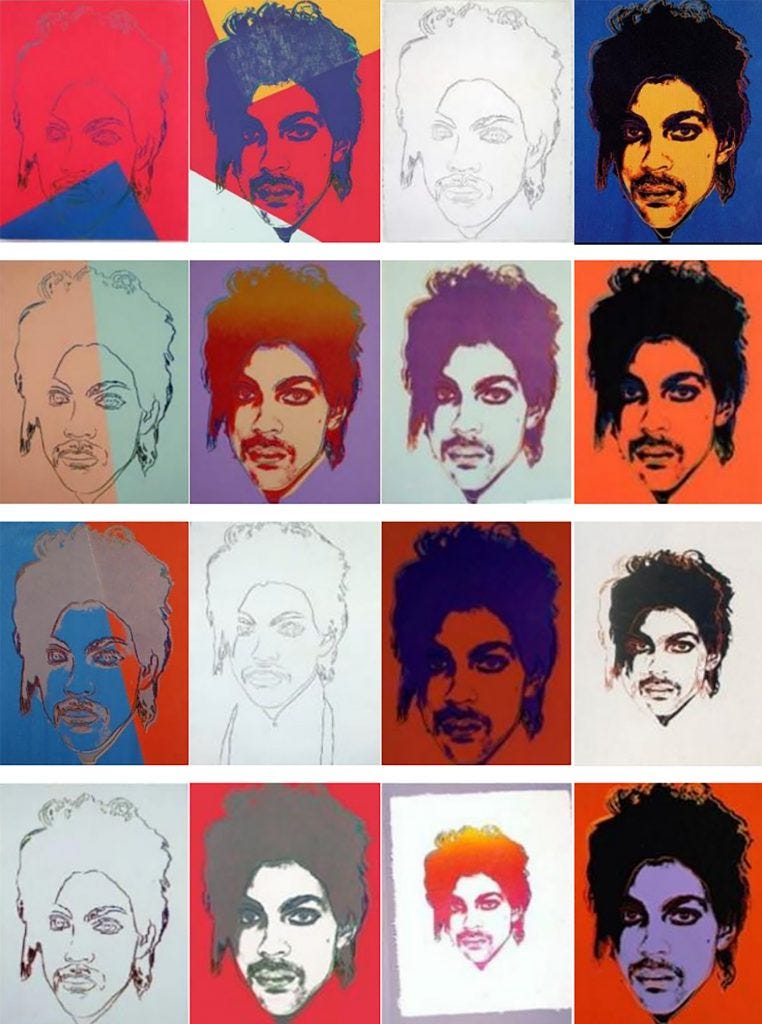Curious Reads: Cancellation Wars
Woke NASA, the James Webb Telescope, and "Presentism"
#1 Today’s “top of the fold” story is about fact versus fiction.
That is, we’re talking about the controversy of naming NASA’s new high-powered telescope.
For years, James E. Webb had been accused by astronomers of harming his LGBTQ+ employees during his tenure at the space agency. And when one black astrophysicist decided to look into it, he discovered there was nothing in the accusations after all.
But when he went public with his research, the dissenters came after him instead.
You can read or listen to this NYT story I can’t get out of my head. Read (behind a paywall) or listen to the story from The New York Times’ “The Daily” podcast (free).
The Highlights:
The story revolves around two main characters. The first is a black NASA astrophysicist Dr. Hakeem Oluseyi.
He had heard from other BIPOC astronomer acquaintances that there was some hubub around naming the telecscope after James E. Webb, with accusations that he had participated in NASA’s “lavender scare” (a corollary of McCarthy’s “red scare”), firing employees because of suspected gender and sexuality when he’d led the U.S. space organization in the 1960s (1961-1968).
Since he had recently taken a job with NASA, he checked with them. Have you heard this? Are these rumors true?
NASA asked him to look into it, as did astronomers who saw him as influential in the field. So he delved into every relevant archive over months to discover whether, indeed, NASA had named their groundbreaking telescope after a man who had perpetuated a harmful history.
The problem was, Webb’s accusers were wrong.
In fact, Oluseyi unearthed in the archives a man he admired, one who integrated a NASA facility in Alabama despite a white governor who aggressively opposed to integration of any kind.
He and NASA released an 89-page report on what he’d found, and Dr. Oluseyi himself wrote a statement in support of Webb based on his thorough investigations.
Unfortunately, this made no difference to the detractors within the astronomy community.
Detractors were unwilling to engage Dr. Oluseyi’s research because, as they said, “James Webb should have known better, anyway.” Webb should have anticipated a gay rights movement that would arrive in the next decades, and because he didn’t share our values right now, today, James Webb should be cancelled, facts be damned.
What’s probably truer is not that they did not care about the facts but that detractors had already decided that someone needed to pay for the past sins of NASA. And detractors wanted that man to be James E. Webb.
And when Dr. Oluseyi’s research disproved their argument, they turned on him, too.
On “Presentism”
This story is a complex story, one that turns on psychology as much as facts. And to understand, I want to talk about “presentism,” a current debate among historians.
“Presentism” is a synonym of “anachronism.” Essentially, it means applying biases and understanding that we have now to the past and judging past actors through our current lens.
Oxford University Press defines presentism as “The practice of writing history from the uncritical perspective of the present...” which sounds to me like they’ve taken a side in this debate.
(Here are two interesting takes for and against “presentism.”)
In a sense, when we view history, we cannot avoid anachronism, not really, because no one alive can see the past except through the eyes of the present.
You and I both have reasons for putting together a particular narrative of the past, and we cannot avoid that distinctive, present-day perspective.
“‘Would one study [history] at all without the impulse of the present?’” says the German historian Leopold von Ranke.1
Yet are facts enough when we talk about history?
Proponents of “presentism” would say that the ethics of history do matter.
Harvard historian David Armitage writes, quoting fellow historian Jörn Rüsen, “Historians almost never wonder, ‘To whom is the historian responsible and for what? And how are these values and this responsibility effective in historical work?’”But, he says, they should.
Because what facts mean matters. Facts are more than facts.
Megan McArdle, a WaPo opinion writer, sees this trend especially pungent among younger folks in “knowledge production jobs—including media and academia—[these journalism students who I taught] saw the job as having a higher purpose than merely generating data and analysis. Those young journalists liked to cite Joseph Pulitzer’s adage that the job of a newspaper is to ‘comfort the afflicted and afflict the comfortable.’”
The reporting of truth, then, becomes a form of activism. If we know we cannot avoid being picky and having a perspective, then we might as well set our purpose toward uplifting the powerless.
Sounds great to me! Sign me up.
Except that the intentional activism here does have a less sparkly side to it.
To be clear, I think both aims can be noble—both the activist intentionality of highlighting forgotten facts and stories for the sake of delayed justice and the hermetic neutrality of the academy telling it exactly as it was.
Yet both have dark sides, whether obscuring facts that do not fit ativist aims or playing pawn to oppressors.
Regardless, the activism camp is winning the presentism debate.
Because of that, there is great pressure on the left and right to cherrypick our facts.
By which I mean, if something does not fit an activist aim—if a truth arises in the genuine search for justice that happens to discredit the activism somehow—then finders feel pressured to hide the truth.
McArdle discovered this with her journalism students, causing her to wonder, “Was I being asked to justify why I, as a journalist, would say something that was true? Wasn’t that the job?”
Can facts & activism work together? Can they work against each other?
McArdle writes of a particular story in which she reported on rape statistics and found something surprising. She elaborates on the backlash: “[My journalism students thought] I was wrong not because I was incorrect, but because the particular truth in question favored protecting the rights of the accused, rather than the more important interests of the victims.”2
I think it’s obvious, if you’ve been reading me for very long, that my own particular bias lies in the camp of truth at all costs. This is a costly position, one I have paid for, and I realize that many feel they do not have the power or privilege to take such a position.
However, I am devoted to the truth, period, even when it does not line up exactly as I hope it will, even when it makes me or my people look bad, even when it’s confusing or feels wrong.
This is because the truth, I believe, does not waver. It is the ground floor of the universe, and it is where God stands.
As I consider this question of truth and justice, I want to suggest that the two need not conflict.
But if/when it seems like they do—when the actual facts conflict with or distort the activist goal—it matters how we respond.
Do we report what we’ve found or cover it up for the sake of the greater good? Are we swayed more by popular opinion than our own conscience? Do we see and protect the humanity of all humans involved in the conflict, including both victim and oppressor?
The current media environment in which we live, friends, is one of suspicion and back-biting. We are convinced we will lack if we don’t take, and we fear justice will never arrive.
Yet I pray that you and I can walk a different way, one that humanizes even our opponents and detractors, one that upholds the truth steadfastly and trusts in the ultimate justice of God.
That, I believe, is the way of Christ.
Thanks for reading. Warmly, Liz Charlotte Grant
Tell me: How do you parse these complex issues? Do you see a tendency toward “presentism” in yourself, the media, your discipline, or the church?
More Curious Reads
#2 This past week, the U.S. supreme court ruled against Andy Warhol. Here’s what it means for American artists and others who wade in the waters of copyright and fair use laws. —Art Net
#3 At some companies, the latest employee benefit is… an affordable home. (If only!) —Time
#4 The heart-pumping story of the “Titanic of the Pacific” and the unlikely survivors. —Atavist
#5 Pope Francis is urging Catholics and non-Catholics alike to “repent of our ecological sins” to heal our planet from climate change. (To which I say, amen!!) —Religion News Service
“We can and we must prevent the worst from happening,” he said, urging people and communities to “come together like so many streams, brooks and rivulets, merging finally in a mighty river to irrigate the life of our marvelous planet and our human family for generations to come.”
The Argentine pope said change can occur only through the transformation of “our hearts, our lifestyles.”
Just for Fun…
“Not a good look.” Philomena Cunk, the crass and hilarious character of Diane Morgan, gets me every time. (There is an eff word for those who care!)
From Harvard historian David Armitage’s 2023 essay, “In Defense of Presentism” (page 6).
From Megan McArdle’s Washington Post 2022 opinion essay, “A fight among historians shows why truth-seeking and activism don’t mix.”










